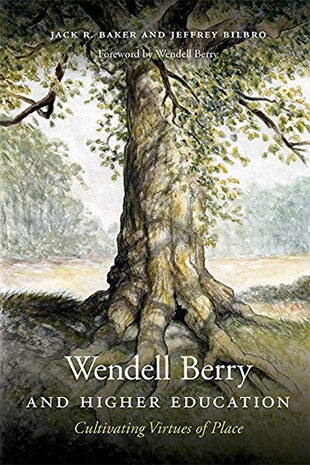For 50 years, Wendell Berry, a farmer, ecologist, and cultural critic, has been sharing his cogent and spiritual vision of the world in essays, poems, and fiction. There is a feisty and contrarian side to Berry's philosophical views of life. In his 1978 commencement address at Centre College, he argued that the love of virtue was the fruit of an education rooted in place and forms the basis for "a healthful economy that is at once physical and spiritual."
Jack R. Baker and Jeffrey Bilbro, associate and assistant professor of English at Spring Arbor University, probe this rural sages' books, essays, fiction and poetry in his quest to reform the shape and direction of higher education. They pose three important questions about these institutions:
- "How might education lead students to practice healthy contentment with people and places?
- What are appropriate ends for a university education?
- In what ways can universities shape their graduates into affectionate, virtuous members of their places? "
Berry disagrees with those who view the American Dream as being about success and upward mobility. By adhering to that focus, universities train students in the flawed virtues of raw ambition, needless risk-taking, and careless transience. In lectures, Berry has used the term boomers to describe those seeking power, wealth, or personal success. Boomerism is to be found in most universities today.
Berry contrasts those greedy folk who have no reverence for place with stickers or nesters, titles used by novelist Wallace Stegner to characterize nurturers who connect with and cherish place, nature, and community. They tend to be stationary whereas boomers are obsessed with mobility. As Berry puts it, "all of us, I think, are in some manner torn between caring and not caring, staying and going."
Baker and Brilbo do a fine job pointing out the ways in which imagination, work, and language can become portals for learning the art of caring for our places. With a swift burst of energy and clarity, the authors show how Berry affirms the virtues of place through tradition (remembering our story), hierarchy (practicing gratitude and respecting limits), geography (reaping the fruits of fidelity), and community (learning to love the membership). As a special added value, the authors include one of Berry's poems at the end of each chapter.
